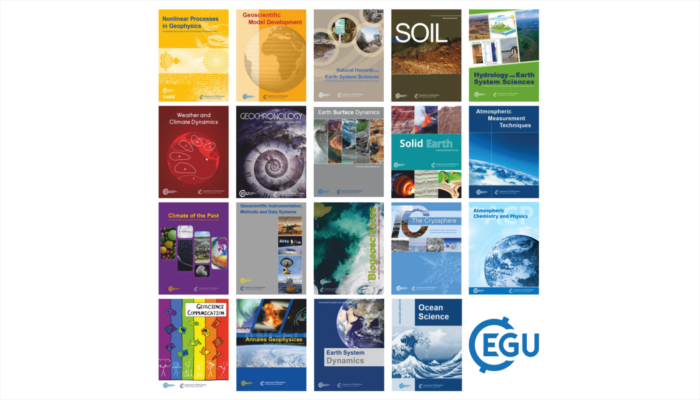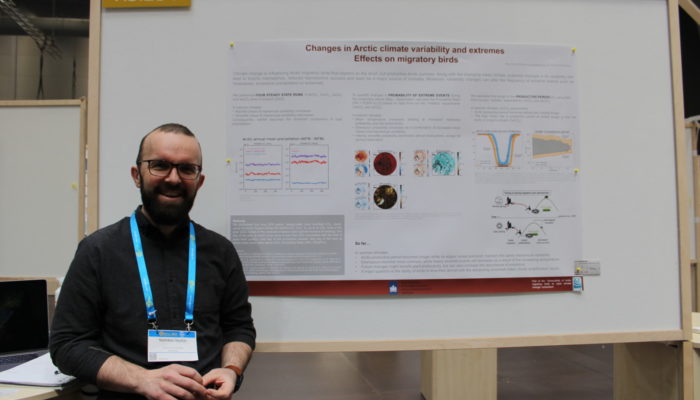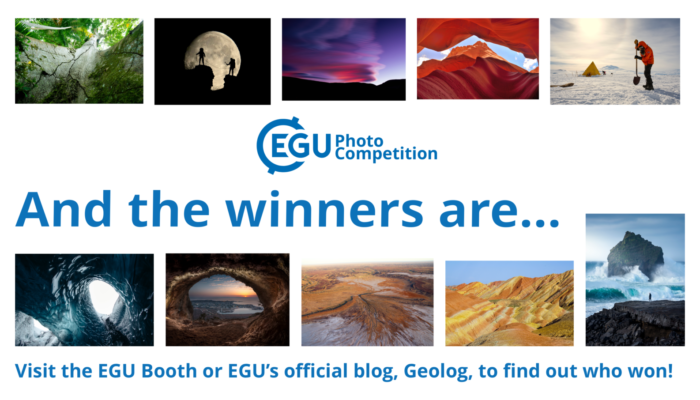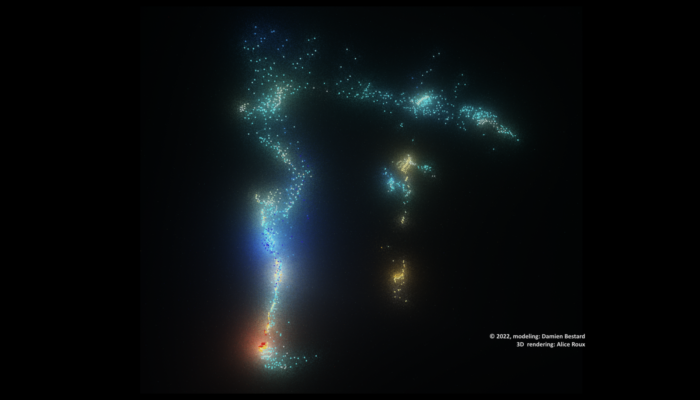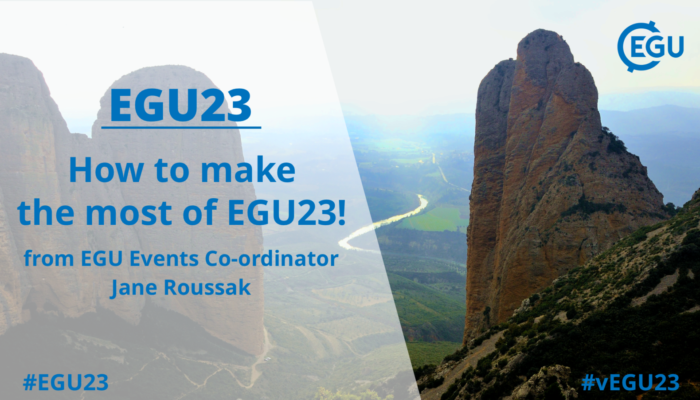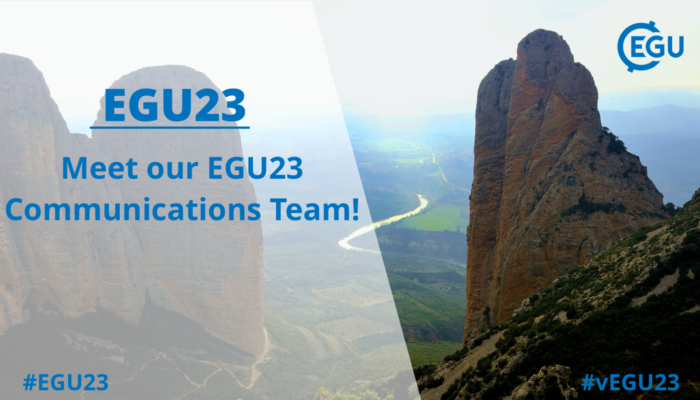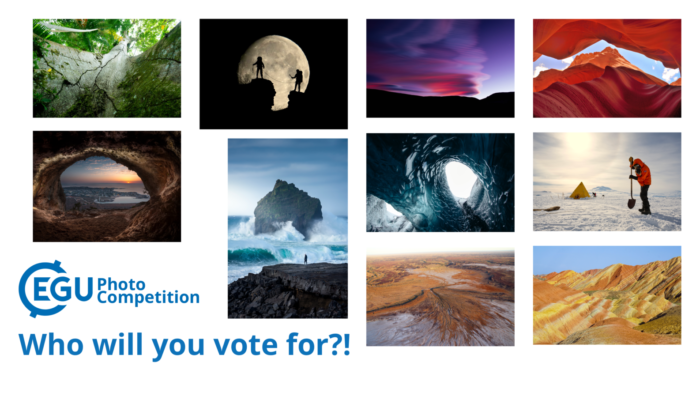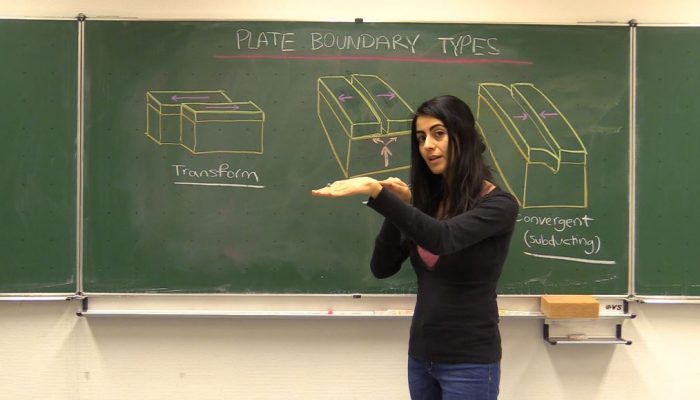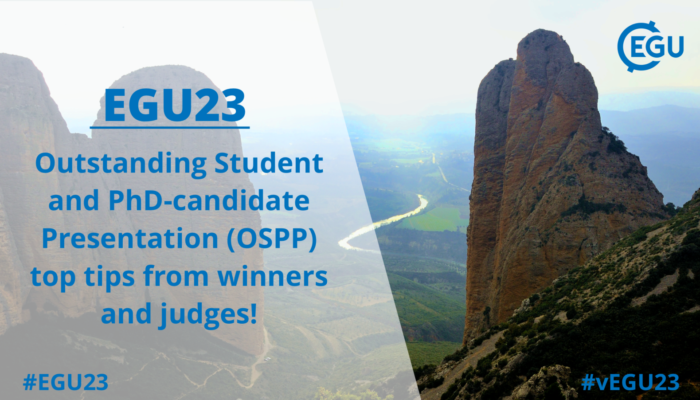Each month we feature specific Divisions of EGU and during the monthly GeoRoundup we put the journals that publish science from those Divisions at the top of the Highlights roundup. For April as we celebrated the General Assembly we are not highlighting any specific Division, so this month our GeoRoundup Journals will be alphabetical! All highlights for April! Atmospheric Chemistry a ...[Read More]
GeoLog
Do changes in Arctic climate variability severely impact migratory birds?
Changes in Arctic climate variability and extremes may have significant impacts for migratory birds, according to a study presented at EGU23 by Nomikos Skyllas, a PhD student from the University of Groningen. Many species cross continents during their seasonal migration patterns, travelling from as far as Africa and South America to northern regions such as Siberia and the Canadian Arctic. If you’ ...[Read More]
GeoLog
Congratulations to the winners of the EGU23 Photo Competition!
For this year’s Photo Contest, EGU received hundreds of amazing images capturing a broad spectrum of the geosciences. After the selection committee whittled the field down to 10 finalists, you have been voting for your favourites throughout EGU23’s week-long conference, both on-site in Vienna at the EGU Booth, and online. After an enthusiastic response from voters, we are now ready -and very ...[Read More]
GeoLog
The varying composition of a single bolt of lightning
Until recently, scientists assumed lightning had a homogeneous distribution of energy inside its channel. But researchers like Damien Bestard, a PhD student with the Sorbonne Université have found that the composition of each bolt is quite variable. Bestard presented his findings at the European Geosciences Union General Assembly EGU23 on Monday (April 24). As part of his research, Bestard measure ...[Read More]
GeoLog
How to make the most of EGU23: from EGU Events Co-ordinator Jane Roussak
The countdown to EGU23 continues and we are now only DAYS away from the much anticipated conference week. With an event of such size and scale, it’s no surprise that some people – particularly first time attendees – may find it intimidating or confusing to navigate the week. So today I decided to talk to Jane Roussak, EGU Events Co-Ordinator to ask her for some last minute tips ...[Read More]
Seismology
“State of the ECS”: There we are again – EGU 23!
Hello everyone, Matthew here signing off on my last State of the ECS. I’ve had a great time working with the rest of the Seismology Division ECS team over the last few years and I am immensely thankful to all the contributors who have provided their seismological expertise and literary wit to create a wide variety of blogs. All the best to the new team taking over the blog series, you’ ...[Read More]
GeoLog
Meet our EGU23 Communications Team!
Everything you see and hear about EGU’s upcoming General Assembly EGU23 is carefully created, designed and posted by our talented communications team! That’s right, this team – our fabulous four if you will – works diligently behind the scenes to manage our social media, blogging and the press conferences. These interns and volunteers are going to be assisting EGU Media and ...[Read More]
GeoLog
EGU23 Photo Competition finalists – who will you vote for?
This year’s Photo Competition judging panel did a fantastic job of narrowing down the outstanding photo submissions to the EGU’s Photo Competition to just 10 finalists! The finalist photos are listed below and on the Imaggeo website where you can vote for them from Sunday 23 April until Thursday, 27 April 2023 – voting closes at 18:00 CEST. The three photos with the most votes will be ...[Read More]
GeoLog
How to make your geoscience communication publishable: Find out at EGU23
A long time ago, when I walked into the Ministry of Education building in Dushanbe (Tajikistan) to inquire about offering an earthquake education workshop in a public school, I had no research agenda, let alone thinking about publishing it one day. All I wanted was to do something useful: sharing earthquake science with school children. Recognizing the value of geoscience communication, my graduat ...[Read More]
GeoLog
Outstanding Student and PhD-candidate Presentation (OSPP) top tips from winners and judges!
Every year at the General Assembly hundreds of students present their research with a lot of time and effort going into preparing these presentations. With the aim to further improve the overall quality of poster presentations and more importantly, to encourage Early Career Scientists to present their work in the form of a poster, the OSP Awards (as they were formerly known), were born. Since the ...[Read More]

